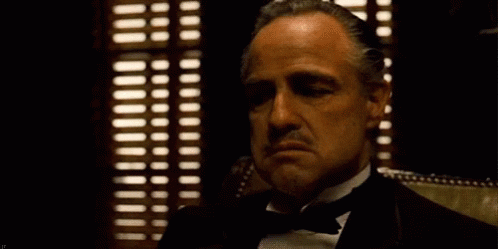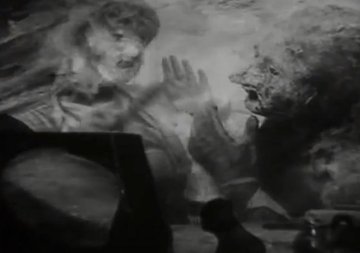The 1972 List

##. Film (Director)
points/votes(top 5 placements, aka likely votes in decade list)/highest ranking
01. The Godfather (Francis Ford Coppola)
235/12(8)/1(x5)
02. Солярис [Solyaris] [Solaris] (Andrei Tarkovsky)
213/11(6)/2(x4)
03. Aguirre, der Zorn Gottes [Aguirre, Wrath of God] (Werner Herzog)
205/11(8)/3(x5)
04. Le Charme discret de la bourgeoisie [The Discreet Charm of the Bourgeoisie] (Luis Buñuel)
201/12(5)/2(x2)
05. Viskningar och rop [Cries and Whispers] (Ingmar Bergman)
180/10(3)/3(x2)
06. What's Up, Doc? (Peter Bogdanovich)
178/10(4)/1(x2)
07. The Heartbreak Kid (Elaine May)
166/9(3)/1
08. Deliverance (John Boorman)
155/9(4)/1(x2)
09. Sleuth (Joseph L. Mankiewicz)
151/7(5)/1
(tie) L'Amour l'après-midi [Love in the Afternoon] (Éric Rohmer)
151/9(3)/2(x2)
11. Frenzy (Alfred Hitchcock)
138/10(2)/3
12. Images (Robert Altman)
129/8(1)/4
13. Blaise Pascal (Roberto Rossellini)
118/6(2)/3
14. Die bitteren Tränen der Petra von Kant [The Bitter Tears of Petra von Kant] (Rainer Werner Fassbinder)
116/8(1)/1
15. Még kér a nép [Red Psalm] (Miklós Jancsó)
105/6(3)/5(x3)
16. Play It Again, Sam (Herbert Ross)
81/5/6(x2)
(tie) The King of Marvin Gardens (Bob Rafelson)
81/6/6
18. The Effect of Gamma Rays on Man-in-the-Moon Marigolds (Paul Newman)
77/6/10
19. Cabaret (Bob Fosse)
75/5(1)/2
(tie) Ultimo tango a Parigi [Last Tango in Paris] (Bernardo Bertolucci)
75/6(1)/5
21. Nybyggarna [The New Land] (Jan Troell)
74/4(2)/1
22. Un flic (Jean-Pierre Melville)
69/6(1)/5
23. Tout va bien [Everything's Going Fine] (Jean-Luc Godard & Jean-Pierre Gorin [Groupe Dziga Vertov])
67/4(1)/4
24. Il caso Mattei [The Mattei Affair] (Francesco Rosi)
66/3(3)/3
25. L'età di Cosimo de Medici [The Age of the Medici] (Roberto Rossellini)
65/4(1)/3
(tie) Roma (Federico Fellini)
65/5/6
27. Fat City (John Huston)
64/5(1)/5
28. Acht Stunden sind kein Tag [Eight Hours Don't Make a Day] (Rainer Werner Fassbinder)
62/4(2)/2
29. Ulzana's Raid (Robert Aldrich)
61/4(2)/3
30. Across 110th Street (Barry Shear)
53/3(1)/4
(tie) Morgiana (Juraj Herz)
53/4/8
32. Reminiscences of a Journey to Lithuania (Jonas Mekas)
50/2(2)/1(x2)
33. Milano calibro 9 [Caliber 9] (Fernando Di Leo)
39/2(1)/5
(tie) 哥 [Uta] [Poem] (Akio Jissōji)
39/2/6
(tie) I racconti di Canterbury [The Canterbury Tales] (Pier Paolo Pasolini)
39/4/7
36. Chung Kuo, Cina [Chung Kuo, China] (Michelangelo Antonioni)
37/2(1)/3
(tie) Avanti! (Billy Wilder)
37/2/6
38. Nel nome del padre [In the Name of the Father] (Marco Bellocchio)
36/2/8(x2)
39. Hapax Legomena II: Poetic Justice (Hollis Frampton)
35/2/7
(tie) Pánico en el Transiberiano [Horror Express] (Eugenio Martín)
35/2/7
41. Play It as It Lays (Frank Perry)
34/2(1)/2
(tie) Slaughterhouse-Five (George Roy Hill)
34/4/12
43. Bone (Larry Cohen)
32/2(1)/3
(tie) The Getaway (Sam Peckinpah)
32/4/10
(tie) Everything You Always Wanted to Know About Sex (*But Were Afraid to Ask) (Woody Allen)
32/4/9
46. État de siège [State of Siege] (Costa-Gavras)
31/2/9
47. La Femme qui se poudre [The Woman Who Powders Herself] (Patrick Bokanowski)
30/2/8
(tie) Pink Flamingos (John Waters)
30/3/10
(tie) Mimì metallurgico ferito nell'onore [The Seduction of Mimi] (Lina Wertmüller)
30/3/12
50. The Other Side of the Underneath (Jane Arden)
29/2/11
ALSO-RANS
The Life and Times of Judge Roy Bean (John Huston)
27/2/9
The Triple Echo (Michael Apted)
27/3/12
A Warning to the Curious (Lawrence Gordon Clark)
24/2/12
The Poseidon Adventure (Ronald Neame)
23/2/13
Ludwig – Requiem für einen jungfräulichen König [Requiem for a Virgin King] (Hans-Jürgen Syberberg)
21/2/7
Prime Cut (Michael Ritchie)
19/2/9
Silent Night, Bloody Night (Theodore Gershuny)
19/2/9
軍旗はためく下に [Gunki hatameku moto ni] [Under the Flag of the Rising Sun] (Kinji Fukasaku)
15/2/14
Straight on Till Morning (Peter Collinson)
14/2/19(x2)
Horace (Alan Clarke)
12/2/15
Buck and the Preacher (Sidney Poitier)
12/2/18
Nationtime (William Greaves)
12/2/20(x2)
Nous ne vieillirons pas ensemble [We Won't Grow Old Together] (Maurice Pialat)
11/2/20
The Hot Rock (Peter Yates)
6/2/22
ORPHANS
Film (Director)
highest ranking
Willi Tobler und der Untergang der 6. Flotte [Willi Tobler and the Decline of the 6th Fleet] (Alexander Kluge)
19
La cabina [The Phone Box] (Antonio Mercero)
4
رگبار [Ragbār] [Downpour] (Bahrām Beyzāie)
18
My Childhood (Bill Douglas)
13
The Carey Treatment (Blake Edwards)
14
Eat the Document (Bob Dylan)
4
愛奴 [Ai nu] [Intimate Confessions of a Chinese Courtesan] (Chor Yuen)
10
Sitting Target (Douglas Hickox)
6
Silent Running (Douglas Trumbull)
12
Beauty Knows No Pain (Elliott Erwitt)
15
L.A. Plays Itself (Fred Halsted)
8
Death Line (Gary Sherman)
14
Superfly (Gordon Parks Jr.)
10
Newsprint (Guy Sherwin)
2
Marjoe (Howard Smith & Sarah Kernochan)
18
The Pied Piper (Jacques Demy)
12
Un homme est mort [The Outside Man] (Jacques Deray)
19
Letter to Jane: An Investigation About a Still (Jean-Luc Godard & Jean-Pierre Gorin [Groupe Dziga Vertov])
11
天下第一拳 [Tian xia di yi quan] [King Boxer] (Jeong Chang-hwa)
15
The Night Stalker (John Llewellyn Moxey)
24
Tomorrow (Joseph Anthony)
22
The Assassination of Trotsky (Joseph Losey)
8
さようならCP [Sayōnara CP] [Goodbye CP] (Kazuo Hara)
1
子連れ狼 三途の川の乳母車 [Kozure ōkami: Sanzu no kawa no ubaguruma] [Lone Wolf and Cub: Baby Cart at the River Styx] (Kenji Misumi)
15
بس يابحر [Bas ya bahar] [The Cruel Sea] (Khaled Al Siddiq)
4
Невестка [Nevestka] [Gelin] [The Daughter-in-Law] (Khodzha Kuli Narliyev)
2
秋決 [Qiu jue] [Execution in Autumn] (Lee Hsing)
13
Betty Tells Her Story (Liane Brandon)
14
Mutations (Lillian F. Schwartz)
7
Le avventure di Pinocchio (Luigi Comencini)
9
Threshold (Malcolm Le Grice)
11
À ceux qui perdent [A Sense of Loss] (Marcel Ophuls)
2
Liza [La cagna] (Marco Ferreri)
17
Sounder (Martin Ritt)
6
札幌オリンピック [Sapporo orinpikku] [Sapporo Winter Olympics] (Masahiro Shinoda)
18
Don't Play Us Cheap (Melvin Van Peebles)
22
Козият рог [Koziyat rog] [The Goat Horn] (Metodi Andonov)
12
The Candidate (Michael Ritchie)
2
Ways of Seeing (Mike Dibb)
1
San Michele aveva un gallo [St. Michael Had a Rooster] (Paolo & Vittorio Taviani)
18
The Harder They Come (Perry Henzell)
14
1776 (Peter H. Hunt)
11
A Day in the Death of Joe Egg (Peter Medak)
15
The Ruling Class (Peter Medak)
9
La Course du lièvre à travers les champs [And Hope to Die] (René Clément)
11
Hickey & Boggs (Robert Culp)
23
Agostino d'Ippona [Augustine of Hippo] (Roberto Rossellini)
23
Junior Bonner (Sam Peckinpah)
16
Sambizanga (Sarah Maldoror)
11
The Concert for Bangladesh (Saul Swimmer)
25
А зори здесь тихие [A zori zdes tikhie] [The Dawns Here Are Quiet] (Stanislav Rostotsky)
8
المخدوعون [Al-makhdu'un] [The Dupes] (Tewfik Saleh)
1
Μέρες του '36 [Meres tou trianta exi] [Days of '36] (Theo Angelopoulos)
14
Bijou (Wakefield Poole)
10
Der Tod der Maria Malibran [The Death of Maria Malibran] (Werner Schroeter)
17
A Reflection of Fear (William A. Fraker)
9
Blacula (William Crain)
25
Die Angst des Tormanns beim Elfmeter [The Goalie's Anxiety at the Penalty Kick] (Wim Wenders)
14
Men of Crisis: The Harvey Wallinger Story (Woody Allen)
25
Lives of Performers (Yvonne Rainer)
13
18 lists submitted





